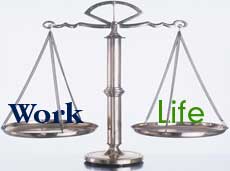I have a confession: I despise business travel.
As someone who values their routine, shuffling through security, subjecting myself to scans of my private bits, and wrangling itineraries and bookings just isn’t my idea of a good time.
Forced downtime doesn’t jive with my personality. It’s also why I choose Amtrak for business travel over planes three to one.
Free WiFi and comfortable seating. It’s the little things.
It seems the only time I’m well and truly unplugged isn’t even of my own design.
The airlines (and the FCC) make that decision for me when all my devices have to be switched off and stowed from the time the cabin doors close and the plane hits cruising altitude.
What am I supposed to do with those 20 minutes away from my content streams and emails and social networks? Read a magazine or actually talk to the person beside me? Nap? Order a cocktail? Actually, that last one sounds pretty good.
The ubiquity of Internet connectivity in public places has reduced the moments of time where we are legitimately unreachable and offline to near zero — and that’s not a good thing.
Always On
Digital theorist and social critic Douglas Rushkoff introduces in Present Shock: When Everything Happens Now the concept of presentism, and how we are living our lives “always on.” It’s certainly worth mentioning I’m rapping out this post from an airport lounge, desperately trying to catch up on a pile of work and prepare for several meetings and presentations.
We’re trying to squeeze every bit of productivity and efficiency out of our professional lives — and more often than not, we’re failing. Perhaps more accurately, technology is failing us.
Digital technology was supposed to change our struggles against the clock. Email supplanted the physical letter, delivering messages in a nanosecond to our inboxes. I don’t know about you, but I get a lot of email. It’s overwhelming at times, getting that deluge of inbound messages that gum up the works of a finely tuned machine.
Work/Life Balance
Computers and virtual networks were going to make more time for the things that really mattered by streamlining and automating antiquated, cumbersome processes and delivery systems. I’ve worked remotely for the past six years, playing laptop hobo from the corner coffee shop or, most recently, as a founding member of CoWork 155.
Ostensibly, I can devote more focused time on doing client work and business developing because I’m not at the mercy of the ebbs and flows of a daily commute. We’ve started thinking less about the number of hours we sit in an office, and more about delivering value and results to clients. Right? Right??
Then something happened.
Instead of choosing when to work and when to – well, live – we don’t ever disconnect. Time has become the new commodity as we try to avail ourselves more, for the benefit of those who’ve hired us for our brains and skills.
I’ve noticed it in my own work, and it was a primary motivator for choosing to stop working from home, and get myself into a dedicated workspace that made it a lot easier to blend work and life into a happy medium.
Taking it Back
I’m a communications professional. I’m not curing cancer and there’s no one bleeding out on the table. No one is dying because I don’t answer that email right this second or don’t tweet more than a few times in a single week.
Having a little humility about the work we do is helpful and healthy – and it means I don’t feel guilty about taking a long bike ride in the middle of the day or spending an hour watching the most ridiculous YouTube videos imaginable.
Busy isn’t a Badge of Honor
I certainly don’t need to brag about working 15 hour days. It happens sometimes, but if it becomes routine rather than occasional, well, Houston, we have a problem. Something needs to be fixed — and fast. Working myself into one giant ball of (unproductive) stress isn’t something to celebrate, ever.
Everyone gets the same hours in a day. It’s our choice how we spend those 24 hours. Cliched? Maybe. But true all the same.
Know Your Limits
I can’t do it all. My desk is littered with projects that start with all the passion imaginable – and then fizzle. I’ll get to them or I won’t. My choice, and I’m cool with that. I haven’t posted to my own blog in – gulp! – several weeks, and nothing bad happened. The people who matter know who I am and what I’m worth.
Redefining Work
It’s not just about output and client deliverables. Those matter, but there’s more to doing meaningful work than the raw number of words written, pages developed, and leads delivered. Figuring out a crunchy client problem or introducing a new pedagogy to your industry is still work – and it matters. It might not be billable, but it’s valuable.
Technology lets us be in more than one place, but there’s a real cost to our productivity and mental well-being. It’s what Rushkoff calls “digiphrenia.” The social media streams are data flows, bringing information to us, little rivers of bits and bytes that move by whether we’re dipping our toes in the water or not.
Reclaim that time and focus on the things that matter beyond work – family, your health, and your hobbies. The Internet will still be here when you choose to login. Your terms, your choice.
See you on the other side.
